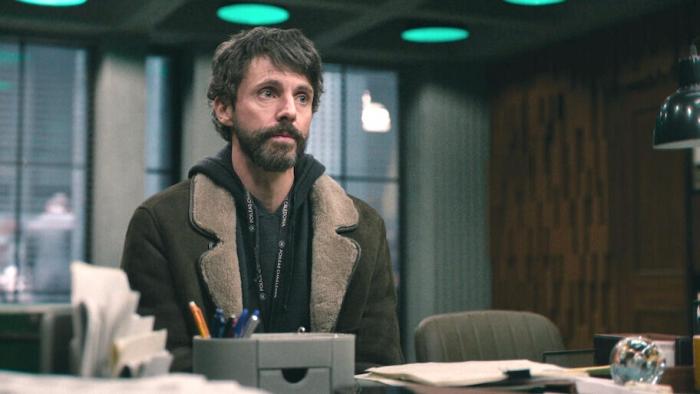
Where Does Troubled 'Ballerina' Studio Lionsgate Go Next?
By Lisa Laman | Film | June 3, 2025

In the early 2010s, Lionsgate truly had come into its own. Though the studio had been distributing movies since 1997 (albeit under the name Cinepix Film Properties) and had scored hits like the Saw movies in the 2000s, it wasn’t until 2012 that the outfit really began cooking. That was the year Lionsgate’s The Hunger Games became a phenomenon. Plus, Lionsgate’s acquisition of Summit Entertainment from late 2011 added hits like Sinister and the final Twilight movie to Lionsgate’s slate. No wonder Lionsgate hit $1+ billion domestically in 2011 and 2012.
Cut to 2025 and Lionsgate is in a profound rut. In the 2020s, the only hits Lionsgate has had are new John Wick, Saw, and Hunger Games movies, plus Christian hit Jesus Revolution. In 2024, the outfit only reached $251.35 million for the year and released a single movie (The Best Christmas Pageant Ever) that cracked $40+ million domestically. Now that Lionsgate is pinning its summer 2025 hopes on a John Wick spin-off, Ballerina (I’m not writing its full dumb title out of principle), where does this studio go from here? What does Lionsgate’s future look like beyond pumping out more John Wick and Hunger Games movies?
COVID-19’s impact on the film industry certainly has hurt everybody in this realm, especially mini-majors and upstart distributors like Lionsgate. Solstice Studios, for instance, went under after just one movie thanks to COVID-related complications, and STX Entertainment folded as a distributor thanks to this health crisis. However, Lionsgate (with its extensive library and massive stature) should be on way more stable grounds than those outfits. Plus, the 2020s haven’t been dismal for every single indie studio. A24 made only $40 million less than Lionsgate in 2024. Neon has released two movies (Longlegs and The Monkey) that both outdid almost all of Lionsgate’s 2024 output. Angel Studios, Crunchyroll, Mubi, Fathom Entertainment, they’ve all hit new box office highs in the 2020s.
Frankly, Lionsgate’s problems have come around largely due to an uninspired slate of movies. In 2022, Lionsgate’s biggest theatrical release (in terms of theater count and marketing) was the atrocious Moonfall. This tentpole saw director Roland Emmerich offering up a hollow pastiche of his earlier VFX-driven disaster films. Its only major wide-release in the year’s final three months was Prey for the Devil, a generic exorcism horror film from the director of the studio’s 2010 feature The Last Exorcism. These were cinematic reruns, not exciting new features. No wonder A24 (which released Everything Everywhere All at Once and Pearl that year) outpaced Lionsgate significantly at the domestic box office in 2022.
2023 saw Lionsgate securing minor salvation through new John Wick, Saw, and Hunger Games movies, but attempts to launch new hits went nowhere save for sleeper hit Sisu. Even quality original films like Joy Ride suffered, thanks to the studio’s poor marketing department. Forgettable shrug-worthy motion pictures, meanwhile, dominated 2024, including instant pop culture punchlines Borderlands and The Crow. While Neon scored a summer 2024 hit with an unexpected Osgood Perkins horror film, Lionsgate picked up North American distribution rights to a Crow reboot that nobody asked for. If your studio largely relies on trash to keep afloat, your whole operation starts to stink.
In the 2000s, Lionsgate inadvertently took risks on distributing projects you couldn’t find anywhere else. 2004 Sundance Film Festival title Saw pioneered the torture horror genre. Tyler Perry’s Madea movies, meanwhile, finally tapped into Perry’s mammoth fanbase that other films ignored. Even Hunger Games was one of the first 2010s blockbusters to recognize the public demand for a teenage girl action-hero protagonist. You didn’t see these things all the time on the marquee.
They weren’t avant-garde masterpieces, to be clear. These were still popcorn entertainment, adhering to familiar molds and archetypes. Plus, certain Lionsgate hits (like the endless Saw sequels or ’80s nostalgia fest The Expendables) certainly relied on asking audiences “remember this?” However, the biggest Lionsgate hits of old did offer something new to people. Heck, as late as 2017, major hit Wonder filled a void for live-action family movies in that holiday season’s marketplace. A year before that, La La Land became a smash while offering up an original live-action musical to audiences. How many of those get green-lit at all, let alone are expected to become huge hits?
In contrast, the 2020s titles Lionsgate backed (either with direct financial investment or just distributing domestically), like Flight Risk or Arthur the King, are reheated leftovers of what audiences have already seen. The Weeknd’s new movie Hurry Up Tomorrow, for a further example, just conjured up memories for moviegoers of his ill-fated 2023 HBO show The Idol. Even Lionsgate’s various Christian movies from Kingdom Story Company have fallen into this trap. While Greatest Christmas Pageant Ever was a hit, Ordinary Angels, Unsung Hero, and Unbreakable Boy all bombed. Maybe it would’ve helped if they looked at all different from one another in their visuals and marketing.
Beyond quality, though, Lionsgate had another major 2020s problem regarding consistent, successful slates. Namely, the production companies that used to provide it with movies have either moved on or collapsed. That includes the whole Summit Entertainment situation. In-development projects Lionsgate inherited once it bought Summit, like Deepwater Horizon, Divergent, or Gods of Egypt, were still getting released as late as 2016. However, since Summit wasn’t an autonomous label inside the company (like Focus Features is for Comcast), Summit couldn’t replenish its library once those earlier projects were exploited. Burning through so many gestating Summit productions leaves a hole in Lionsgate’s slate.
Meanwhile, Lionsgate and Millennium Films used to be tight as nails. This Avi Lerner production outfit provided Lionsgate with tons of action movies throughout the 2010s, including the Expendables and Hitman’s Bodyguard features, plus 2019’s smash hit Angel Has Fallen. As late as 2019, Millennium still contributed three films a year to Lionsgate. That same year, CBS Films provided three theatrical wide releases for Lionsgate as well. Cut to 2025, Millennium and Lionsgate rarely work together, while CBS Films no longer exists after the CBS/Paramount merger.
Lionsgate’s heavy reliance on production companies to fill out its annual slate is nothing new. Universal Pictures, for instance, is massively reliant on Blumhouse Productions, Illumination, DreamWorks Animation, and others for its typical yearly slate. However, Lionsgate hasn’t replaced CBS Films and Millennium with other production companies. That’s left Lionsgate’s 2020s exploits adrift. What movies Lionsgate does connect with mostly tank critically. To put it bluntly, being associated even just as a distributor with Megalopolis, The Crow, and Hurry Up Tomorrow gives Lionsgate a reputation as a home for dismal cinema that has nowhere else to go.
Is there hope to turn this around? Actually, salvation may be approaching in the form of the kind of smaller original films that put Lionsgate on the map in the first place. October 2025’s comedy Good Fortune has the ingredients to surprise financially. Most intriguing, though, is Christmas 2025’s The Housemaid, an Amanda Seyfried/Sydney Sweeney thriller that could totally breakout, especially given its source material’s popularity. Plus, whenever that tormented Michael Jackson biopic Michael comes out, it likely has a shot at making coin.
Lionsgate’s recent decision to ditch John Wick director Chad Stahelski’s Highlander remake (despite the feature being developed at Lionsgate for nearly a decade) is actually a promising sign. This outfit is finally prioritizing smaller titles like The Housemaid, not more big-budget blockbuster follies. If I were to suggest anything, I’d also urge the studio to invest and release some movies aimed at teens. That market’s woefully under-tapped in the 2020s. Plus, Lionsgate’s biggest hits (La La Land, the Hunger Games movies, Warm Bodies etc.) came from resonating with that crowd. Lionsgate must once again make movies satisfying audiences that aren’t presently the focus of rival studios. The days of flooding the marketplace with more Deadpool/John Wick/Guardians of the Galaxy rip-offs must cease. Milking every penny out of John Wick, The Blair Witch Project, and Now You See Me must also stop. Only then can they escape the days of Borderlands and Moonfall and return to something approaching those early 2010s box office glory days.


